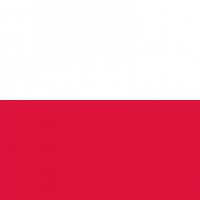Summary:
A Polish company from the biotechnology sector has developed a method of dealing with bacterial pathogens using bacteriophages - small agents that infect and kill bacteria. They are more precise, safer and more effective than commonly-used antibiotics - they even can deal with antibiotic-resistant strains of bacteria. Cooperation within the framework of a commercial agreement with technical assistance is offered or technical cooperation agreement.
Description:
Bacteria are present in most of the Earth's habitats, frequently living in a symbiotic relationship with other organisms, benefiting humans, plants and animals. But not all bacteria are so helpful. Some can cause infectious diseases, thus changing the relationship into pathogenic and parasitic. The most common solution has been antibiotic. But they come with their own set of problems and side effects - most importantly they also kill the 'good' bacteria, thus destabilising organisms' natural microbiota. They also become increasingly ineffective due to a growing number of antibiotic-resistant strains of bacteria.
A biotech SME from the north-western part of Poland, which was founded in 2018 by two bioengineers with an academic background, has developed and is offering an alternative solution. They can neutralise harmful bacteria using submicroscopic infectious agents - bacteriophages. They replicate inside the living cells of bacteria and 'devour' them. The technology is more precise than antibiotics; one can use it to target one specific strain of bacteria instead of a broad spectrum of them, thus limiting side effects.
Medical applications of the technology have been widely known (phage therapy). But the company sees other fields it can be implemented e.g. agriculture and horticulture, animal husbandry, and veterinary medicine. With this goal in mind, the firm is offering commercial agreement with technical assistance to e.g. producers of agricultural chemicals, manufacturers of animal feed or other partners interested in adding or substituting currently used antibacterial agents with the offered bacteriophages. Partner is expected to buy non-exclusive rights to the technology, and to use it in his products. In turn, the company will provide bacteriophages, help in developing their mixture that will most efficiently deal with specific bacteria, and assist in introducing it to partner's products. Additionally, the company will provide training in Good Laboratory Practices in work with bacteriophages.
The company is also open to collaboration with universities, R&D centres and other firms under the technical cooperation agreement on new products with antibacterial properties or new applications of bacteriophages. The company will contribute its technology, expertise and resources.
Type (e.g. company, R&D institution…), field of industry and Role of Partner Sought:
Commercial agreement:
Type: industry, i.e. manufacturers of animal feed, agricultural chemicals and other companies that want their products to have antibacterial properties.
Role: Partner will have to buy non-exclusive rights to the technology and introduce the bacteriophage mixture to its products.
Technical cooperation agreement:
Type: universities, R&D centres, companies
Role: Partner is expected to engage the company in its project aimed at developing new products with antibacterial properties or new applications of bacteriophages.
Stage of Development:
Already on the market
IPR Status:
Patents granted
Comments Regarding IPR Status:
Polish patent has been granted.
External code:
TOPL20200724001








